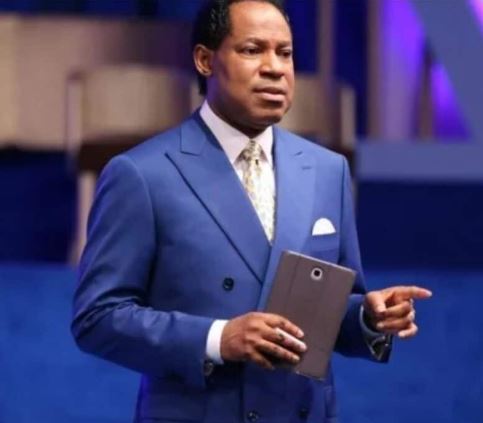There is friction between the Inspector-General of Police (IGP) Kayode Egbetokun and the Police Service Commission after he challenged PSC’s directive mandating the retirement of officers who have served for 35 years or reached the age of 60.
Recall that he had strongly opposed the order mandating many senior officer who have reached the age and time of service to retire.
According to reports, the controversy escalated following a wireless message from the Force Secretary’s office, dated February 5, 2025.
The message stated: “INGENPOL strongly directs all officers affected by the PSC’s directive to stay action, pending further directive. This directive should be strictly complied with.” This directive directly contradicts the PSC’s earlier order, which enforced the immediate retirement of affected officers in line with Public Service Rule No. 020908 (i & ii). The rule mandates that public servants must retire after completing 35 years of service or upon reaching the age of 60.
Despite the apparent contradiction, the PSC has maintained that the IGP’s directive should not be seen as a rejection of its decision.
PSC spokesperson Ikechukwu Ani, speaking to Vanguard, clarified: “We have conveyed this to the IGP. I saw the signal you are referring to. They mentioned that the IGP said they should hold on for further directives, and I don’t think it contradicts our decision. There may be something he wants to put in place. They showed up for further directives, and I don’t see this as him rejecting the commission’s decision.”
However, some retired senior officers, including former Deputy Inspectors General of Police (DIGs), Assistant Inspectors General (AIGs), and Commissioners of Police (CPs), have criticized the IGP’s directive. They argue that it undermines the established civil service retirement regulations and sets a concerning precedent.
A retired Assistant Inspector General of Police, speaking anonymously, said: “It’s unfortunate that the Force keeps finding herself in such awkward situations.
“I believe those caught up in this mess should have been allowed to exit the Force quietly without any back and forth.
“After all, the Military has been retiring their officers without much fuss about it.
“I believe these Force entrants should count themselves lucky to have attained their present rank, as they were promoted over and above their peers, who were toiling day and night shifts while they sneaked to study and acquire these qualifications most times without receiving approval to do so.
“That notwithstanding, they want to stay put, claiming so-called fresh appointment. The Public Service Rules quoted by the PSC are quite explicit.
“Most Force entrants usually exit the Force when they attain 60 or 35 years of service, so why the debate about it now?
“But curiously, the IGP is also caught up in the same web, because should these guys leave, the pressure for him to leave might intensify.”
Another retired Deputy Inspector General of Police (DIG), also speaking anonymously, dismissed the IGP’s directive, emphasizing that the PSC has the final authority on police retirements.
He said, “The IGP has no power over PSC on that matter of retirement after serving 35 years or attaining 60 years.
“What we heard from the grapevine is that vested interests from above are trying to shift the goal post for political reasons. The institution bears the brunt.”
A retired Commissioner of Police (CP) from the northern region also criticized the IGP’s stance, warning that it could negatively impact police morale.
“The IGP’s counter-order is wrong, and it will crash morale. Nepotism is getting worse, and it’s alarming,” the retired CP stated.
Another retired Assistant Inspector General of Police (AIG) from the South-West echoed similar concerns, highlighting how favoritism within the force has worsened over time.
He said, “The focus on who benefits from legislative changes will lead to demoralization, which is counter-productive to the force’s effectiveness.
“In our days, even though we were under-funded, we tried not to give prominence to favoritism and nepotism.”
Meanwhile, some Commissioners of Police who were forced to retire after reaching 35 years in service, but were yet to turn 60, have vowed to either push for their recall or demand financial compensation.
One of the officers explained: “This is playing out because it also affects the IGP. Already, there has been clamour for him to step down, having attained the Civil Service law on retirement.”
A retired Commissioner of Police, simply identified as Okey, noted: “These reactions suggest that the IGP’s stance has sparked controversy and dissent within the Police Force, with many senior officers opposing the move as unjust and contradictory to the law.
“Already, four senior police officers, including three Assistant Inspectors-General (AIGs) and a Commissioner of Police (CP), have filed a lawsuit against the PSC, challenging the directive.
“The lawsuit is likely to further exacerbate the tensions between the PSC and the police hierarchy, which has been simmering since the directive was issued.”
Okey highlighted another layer of complexity, noting that the law fails to clearly specify the retirement age or years of service for police officers. Instead, it provides a provision for the re-engagement of retired officers, leaving room for ambiguity and potential future implications.
He continued, “But it is worthy to note that the Act in question doesn’t explicitly state the retirement age or years of service, but it does mention that a retired police officer may be re-engaged for another period upon application. This re-engagement is subject to the approval of the IGP.
“There’s a proposal to create special retirement service years or age for police officers, different from the general norm in the civil/public service.
“It’s worth noting that the Act repealed the Police Act Cap. P19, Laws of the Federation of Nigeria, 2004, aiming to provide a framework for the police force to ensure cooperation and partnership between the police and host communities.”



























